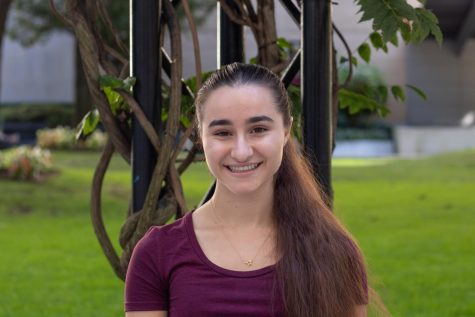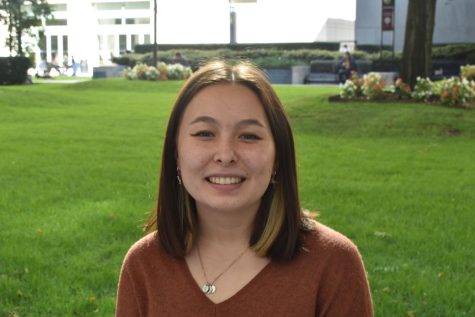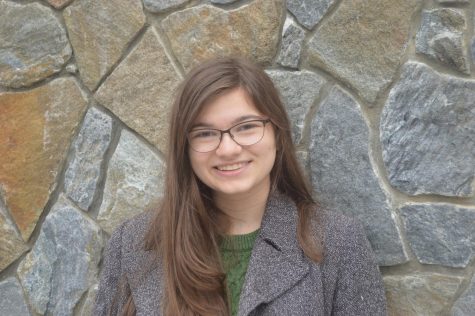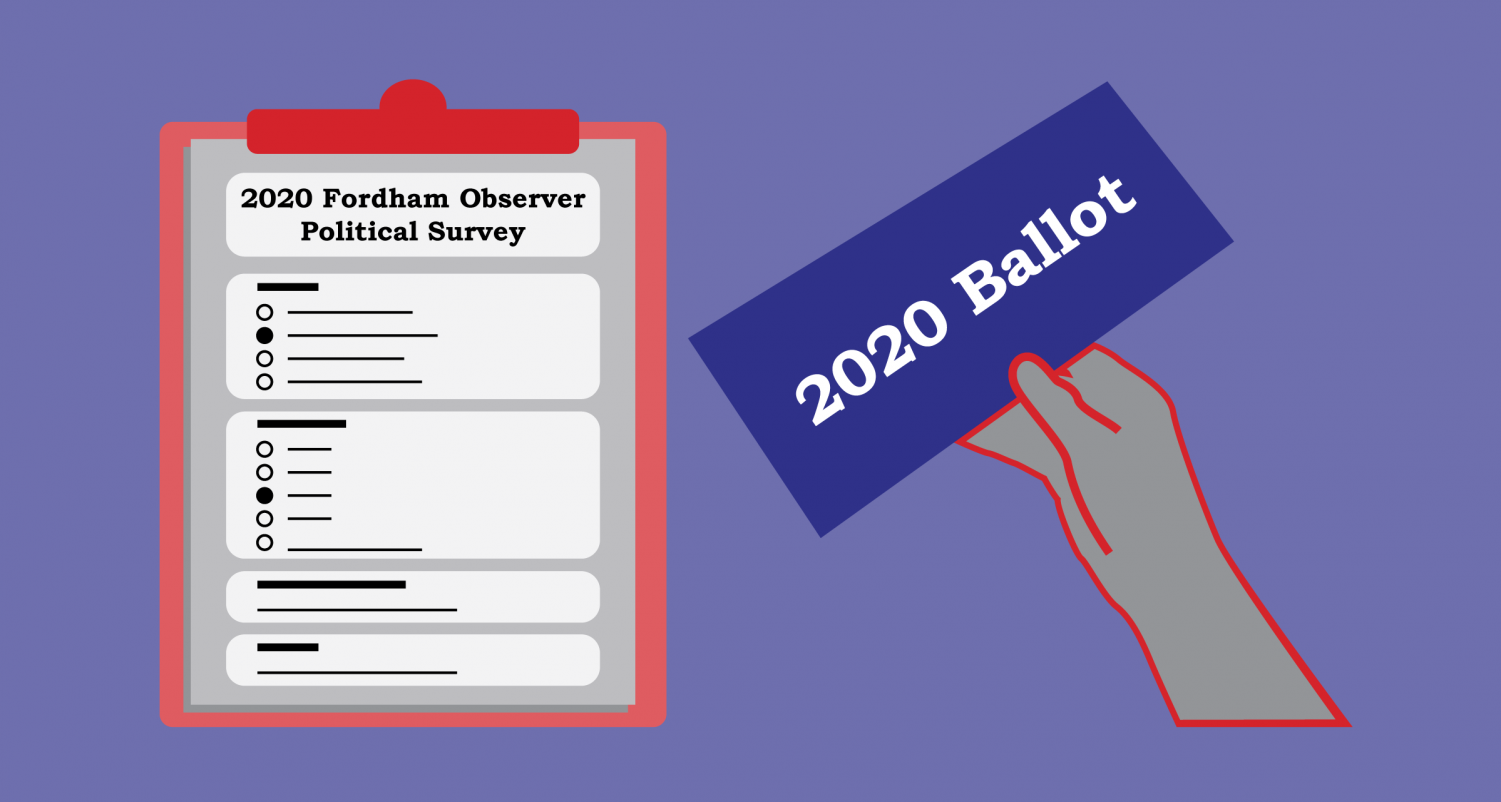The Observer conducted an anonymous survey of 211 Fordham students between Sept. 8 and Oct. 18 to study college students’ values, analyze opinions of the United States’ political system and inquire into how politics impact personal relationships as part of The Observer’s coverage on the 2020 presidential election.
The survey produced results with an emphasis on Fordham College at Lincoln Center students, who comprised over 75% of the sample size. The respondents are composed of all grade levels, including five 2020 graduates. The largest groups of respondents came from the class years of 2021 and 2022, equaling 60.6% of the total. The class of 2023 made up 28.9% and the class of 2024 made up 8.1% of the sample.
The most common major among participants was political science, followed by English and global business.
Participation was voluntary; The Observer distributed the survey to the Fordham community via social media, The Observer newsletter and selected department’s email lists.
How do you identify politically?
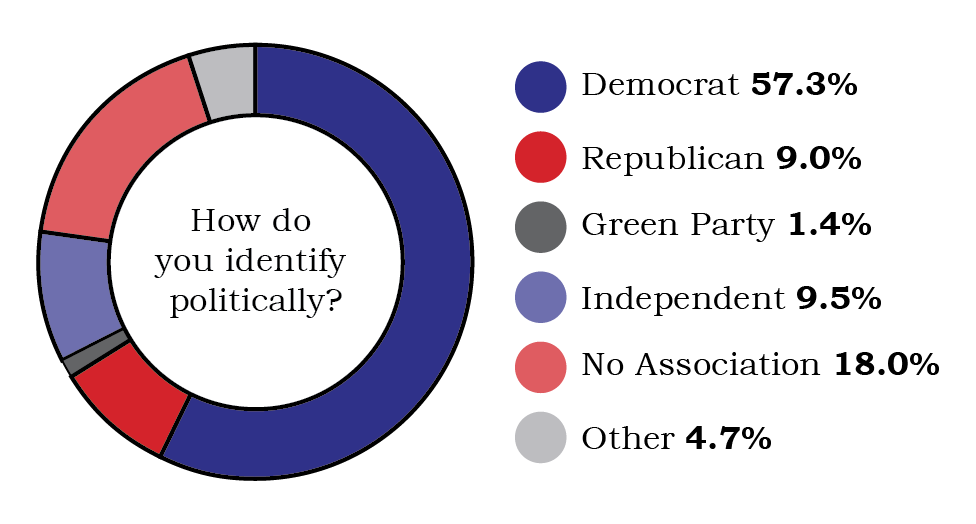
Over half of the respondents to the survey identified as Democrats and 9% as Republicans. Outside of the U.S.’s two major political parties, 17.1% of students said they do not associate with any political party and 9.5% identified as Independent. The other 7.5% of respondents wrote in third party affiliations — such as libertarian and the Green Party — and more left ideologies, such as communism and socialism.
Are you planning to vote in the 2020 election?
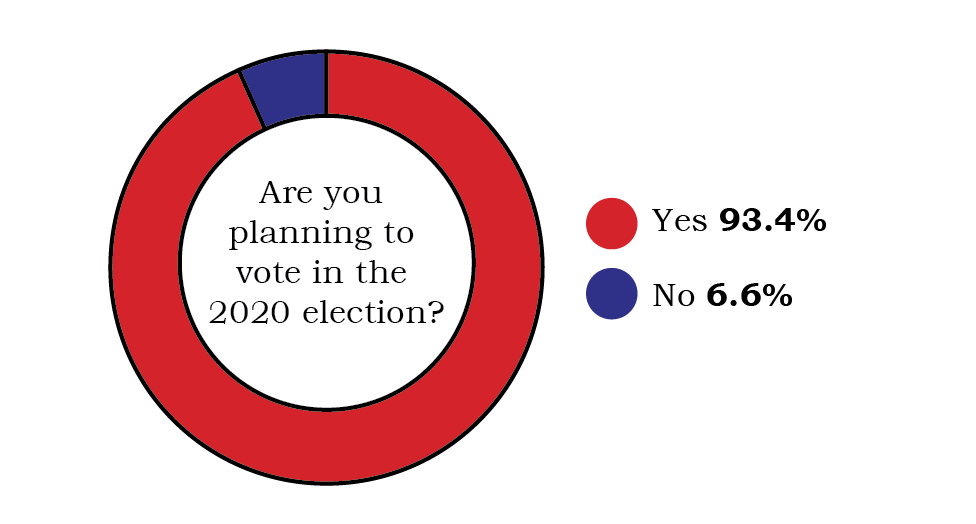
An almost unanimous 93.4% of students planned on voting in the 2020 presidential election. Read additional coverage on the student divisions created by the choice to vote here.
If you answered yes to voting in the 2020 election, how are you planning on submitting your ballot?
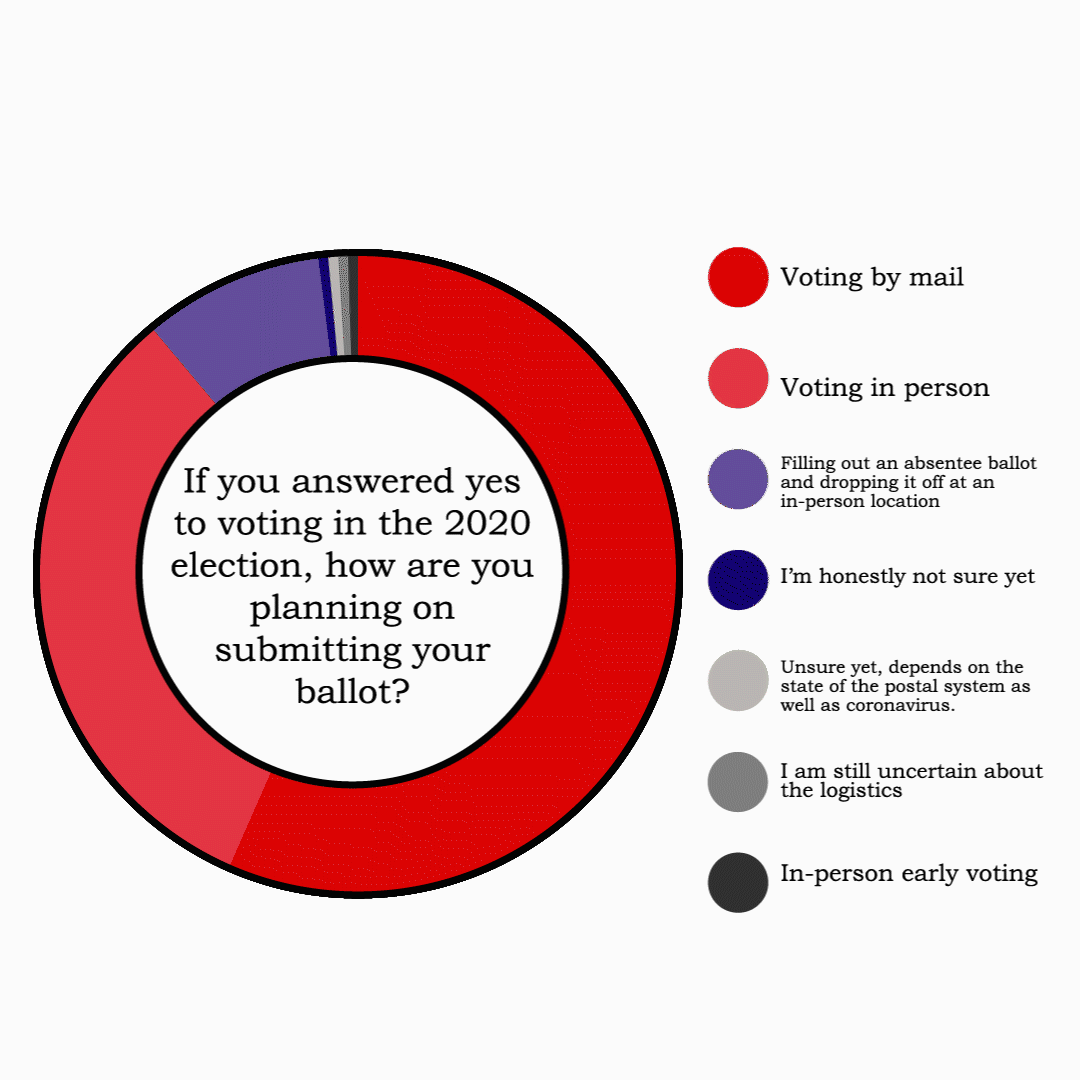
The majority of Fordham students who participated in the survey voted by mail, while one-third of respondents voted in person. Dropping off an absentee ballot at an in-person location comprised 9.1% of responses, while 1.5% said they were unsure how they were going to vote at the time of their survey response. Read additional coverage on how Fordham students plan on voting here.
If you answered “Voting by mail” to the question above, how confident do you feel about your vote being counted on time?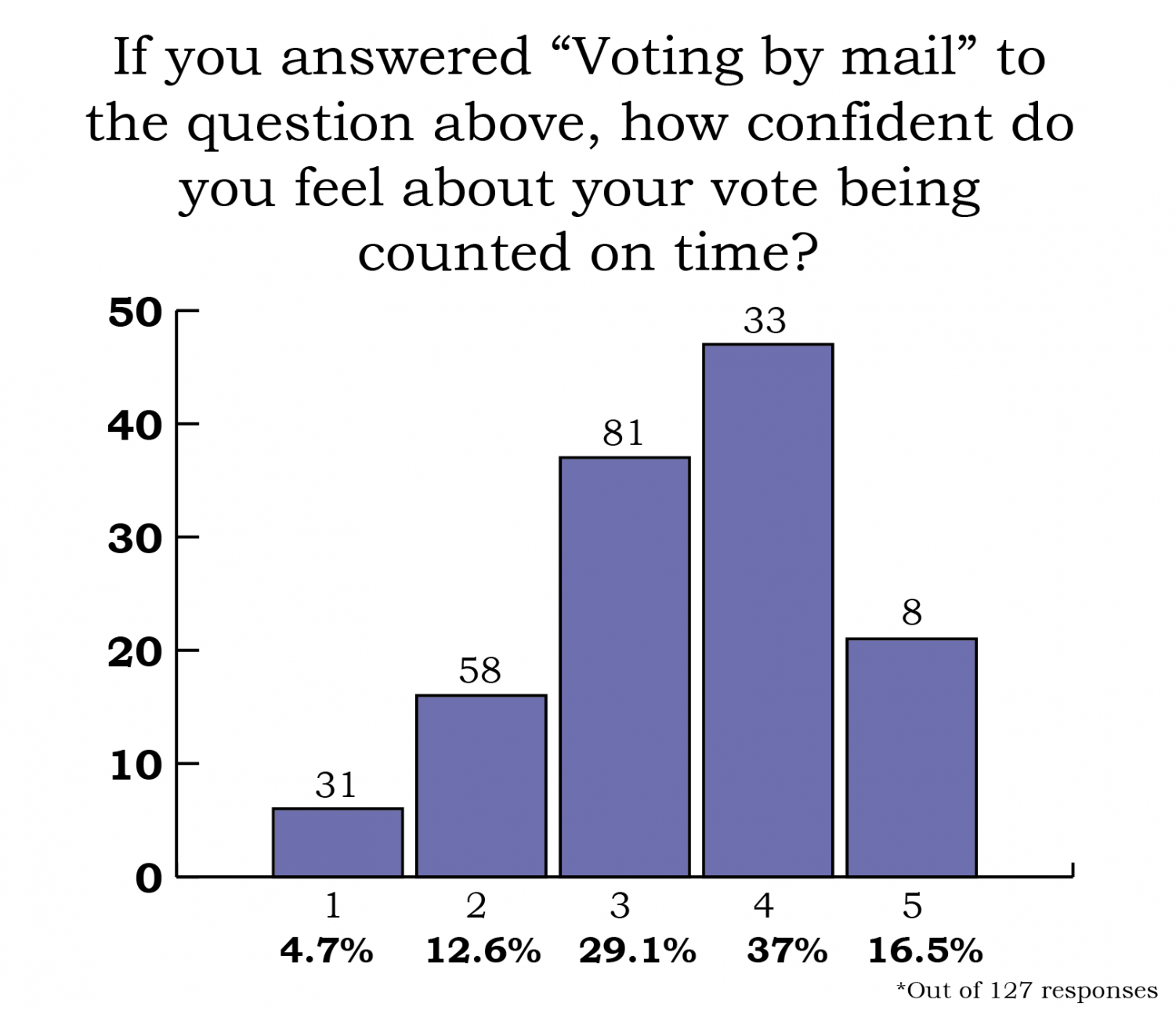
Even with systematic slowdowns of the United States Postal Service, most students said they are confident that their mail in ballot would be counted on time, with only 17.3% of respondents saying they were very or slightly doubtful. Read additional coverage on voting during a pandemic here.
As a college student and a young person, do you feel like your vote is being suppressed?
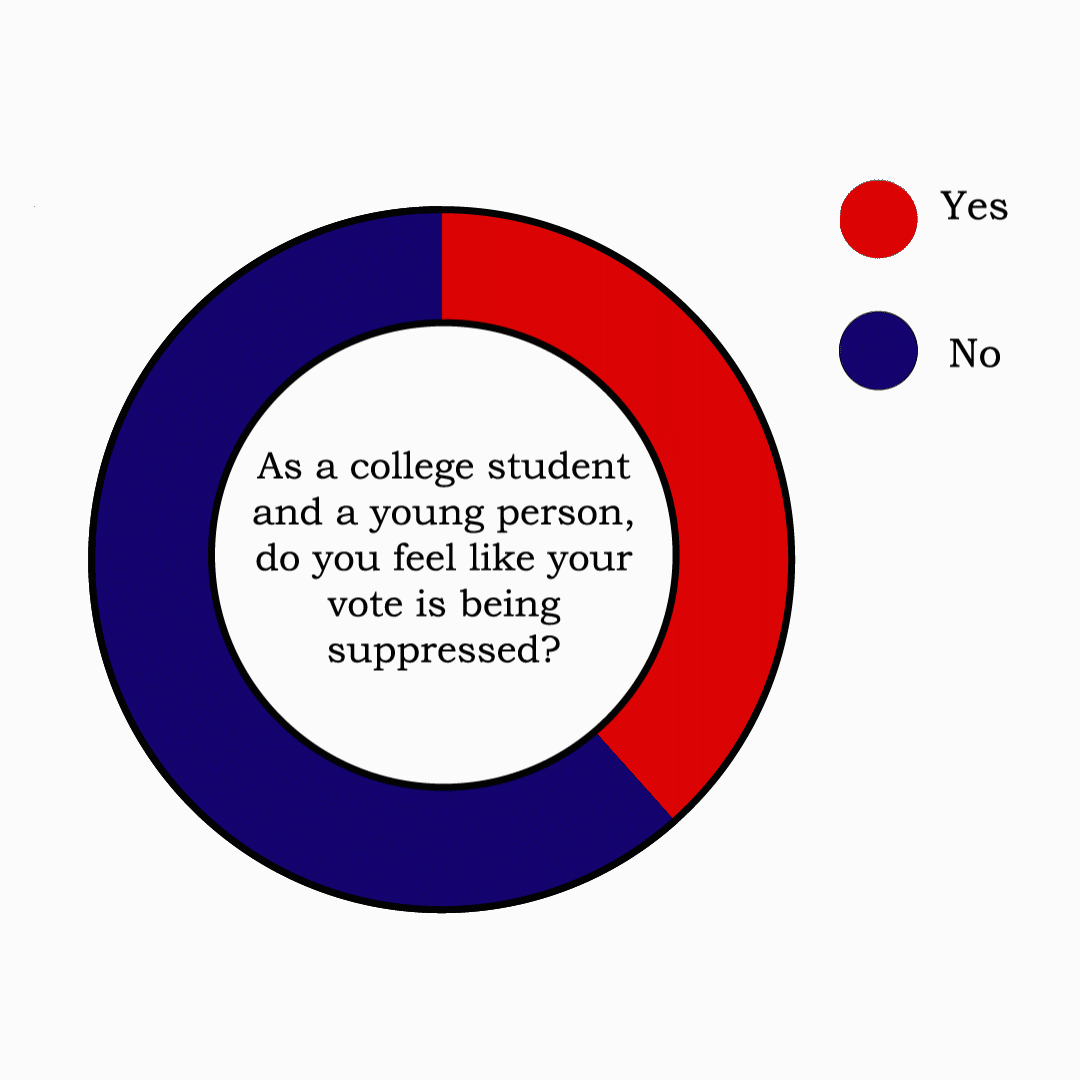
As young voters, 61.3% of students responded that they do not feel like their vote is being suppressed. Read additional coverage on voter suppression of college students here.
If you answered “yes” to voting in the 2020 election, whom do you plan on casting your ballot for in terms of president and vice president? 
An overwhelming 86% of Fordham students who participated in the survey planned on voting for the Democratic ticket. Only 8% planned on voting for the reelection of President Donald Trump, and 1% said they are voting for third-party candidates. A handful of respondents were unsure of who they were going to vote for at the time, and 1.5% said they preferred not to share.
If you answered “Joe Biden and Kamala Harris” for who you plan on voting for, rank on a scale from one to five on how you feel about their platform. 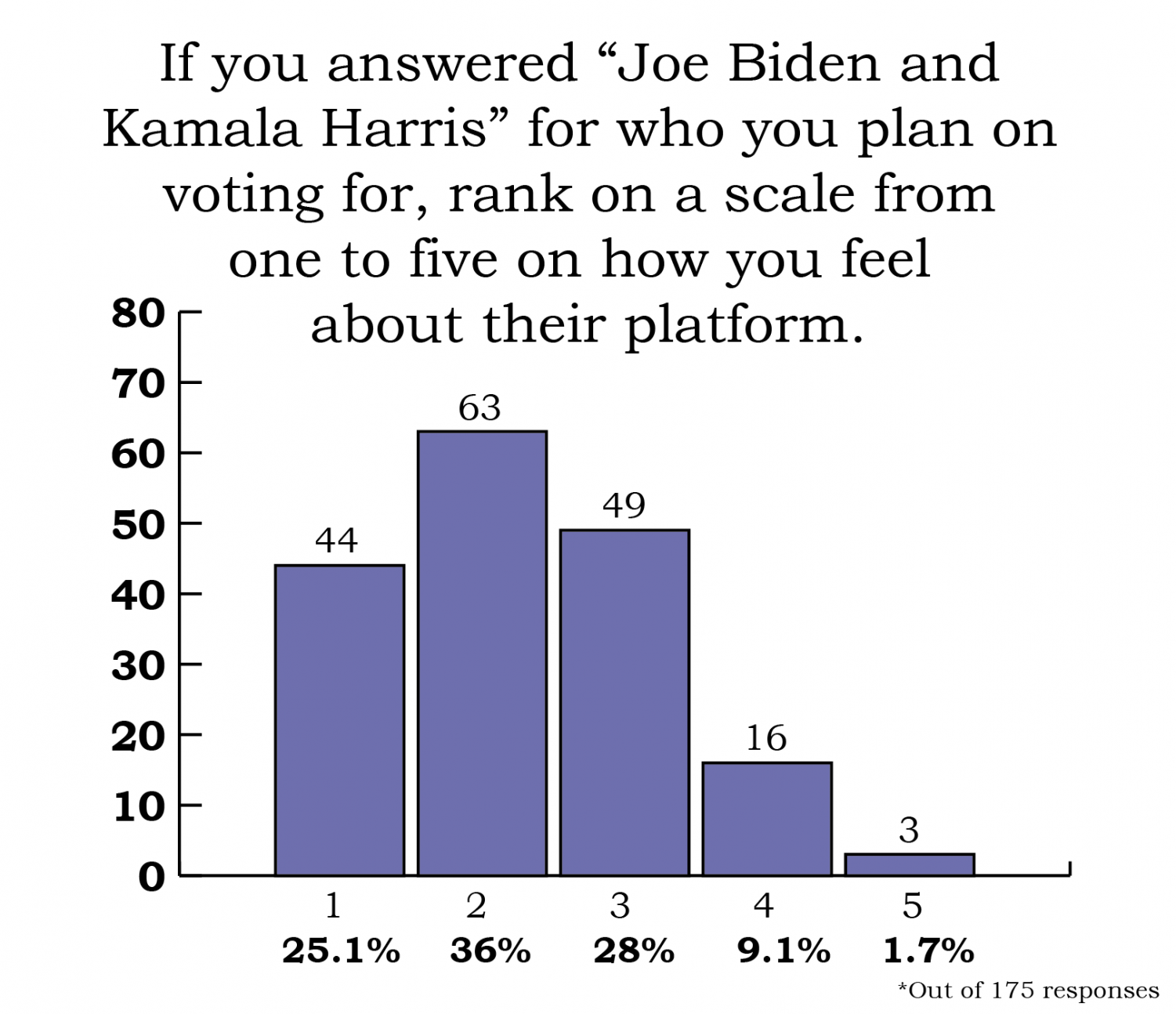
Only 1.7% of students are highly in agreement with his platform. One-fourth of respondents strongly disagree with his ideologies, while the rest lie in the middle. Read additional coverage on student perspectives of candidates here.
Has your image of a preferred candidate changed in the past six months due to the ongoing coronavirus pandemic and the Black Lives Matter protests?
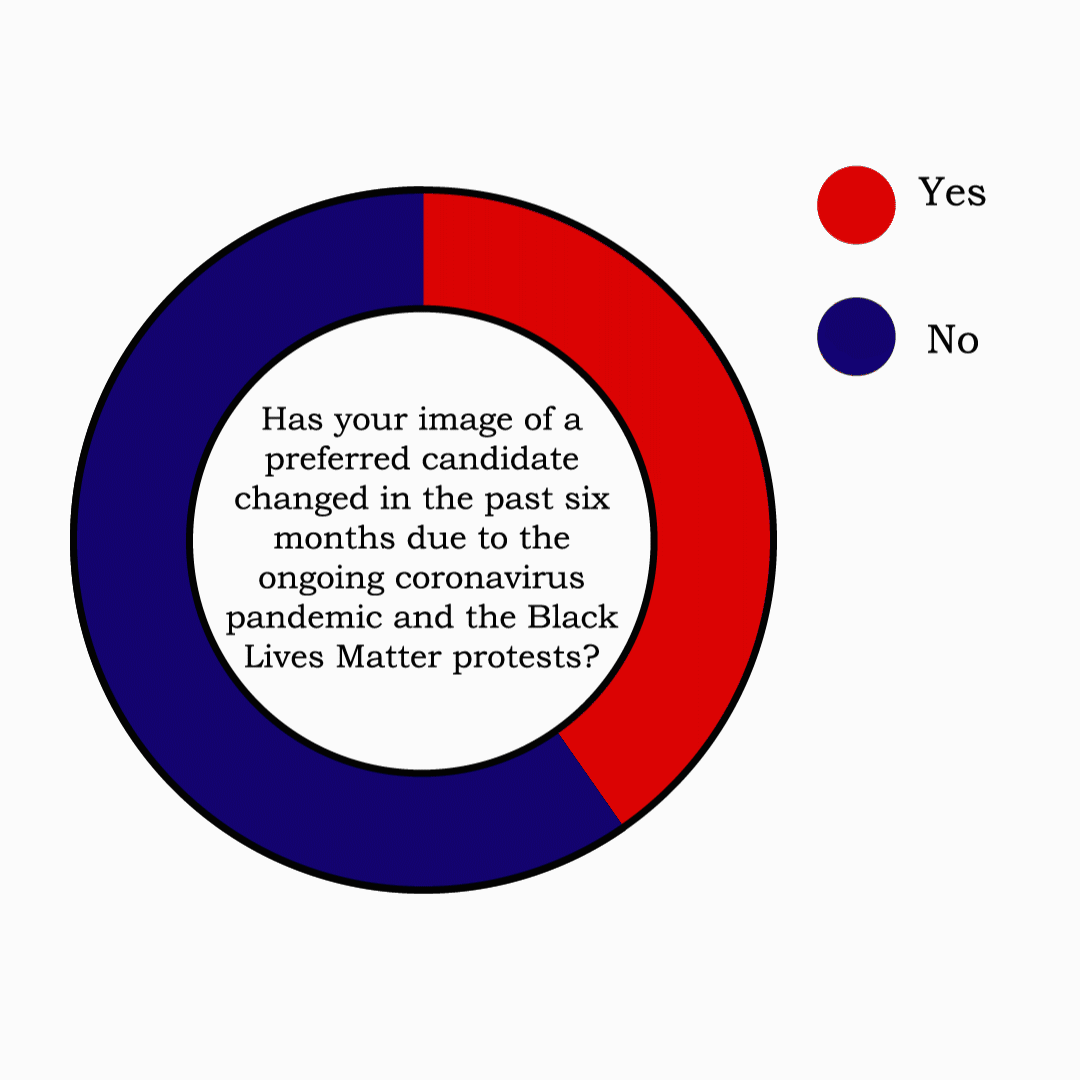
A majority of students said their opinion on the candidates has not changed in the last six months. Read additional coverage on the intersection of the Black Lives Matter movement and the presidential election here.
Do you believe that the demands of the current Black Lives Matter movement have influenced politics and will trigger legislative change? 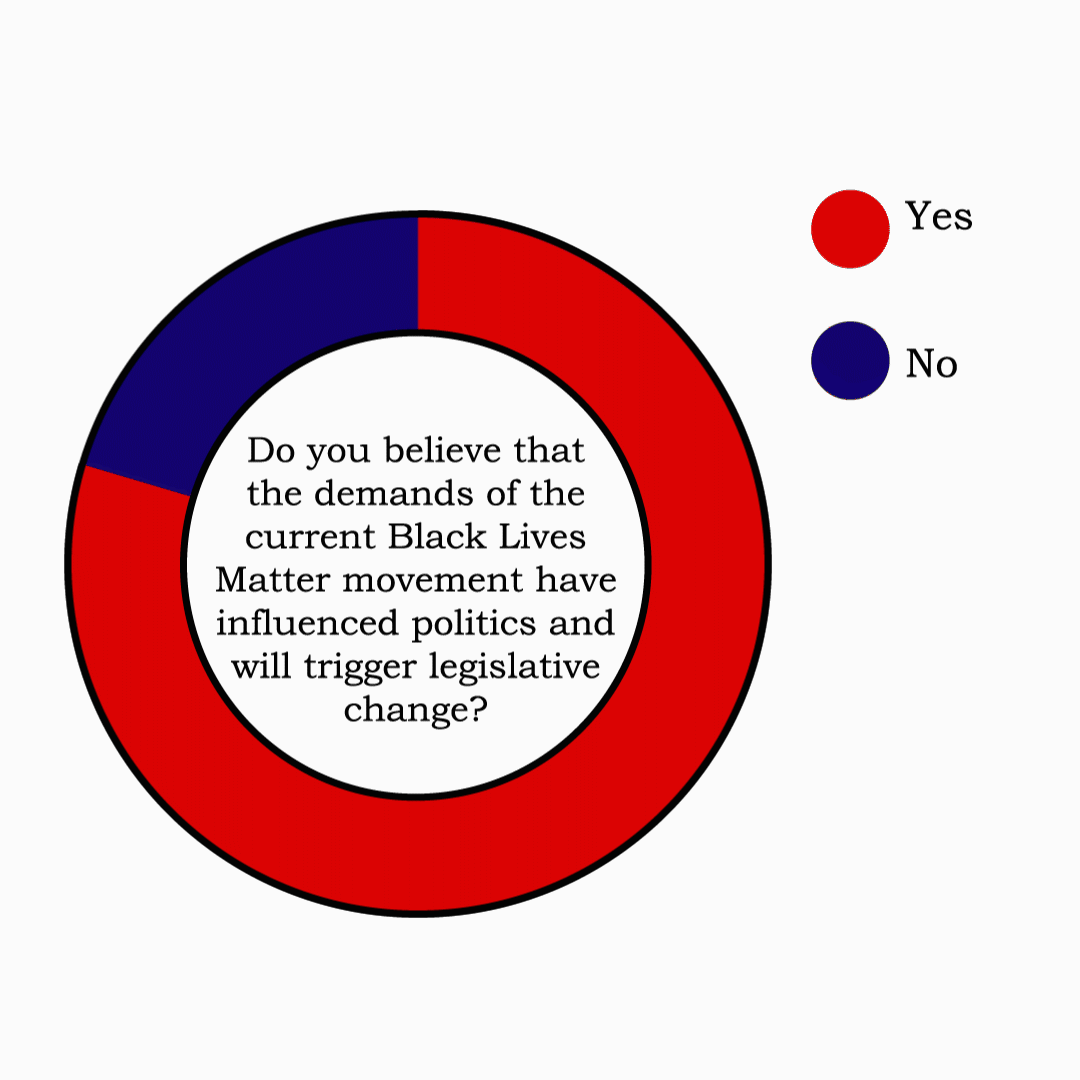
Do you think that the Black Lives Matter movement has influenced people’s thoughts on the 2020 election?
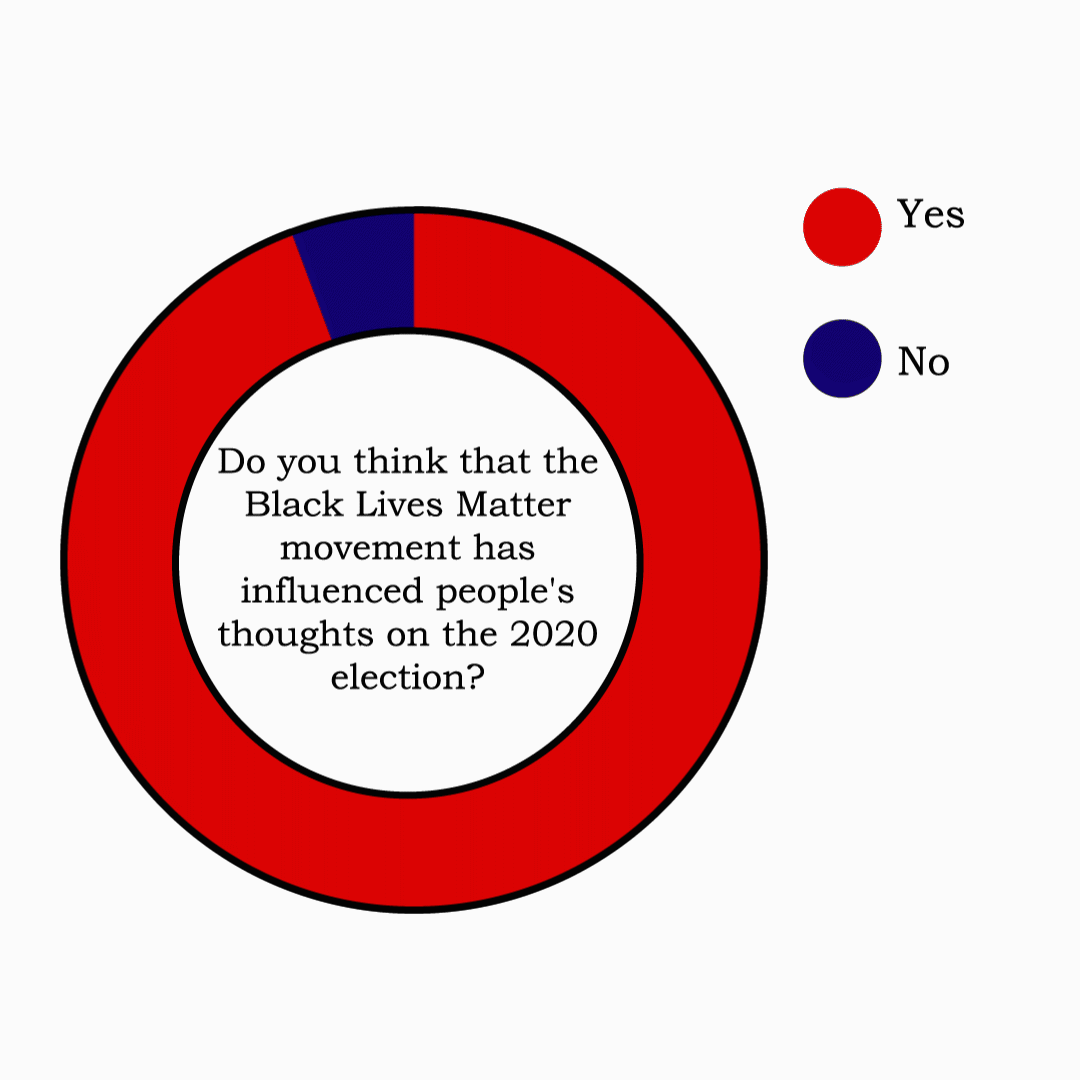
Most students felt like the Black Lives Matter movement has influenced U.S. society on both an individual and governmental level. Read additional coverage on student thoughts about how Black Lives Matter has triggered change here.
Have you actively participated in the Black Lives Matter movement since the murder of George Floyd?
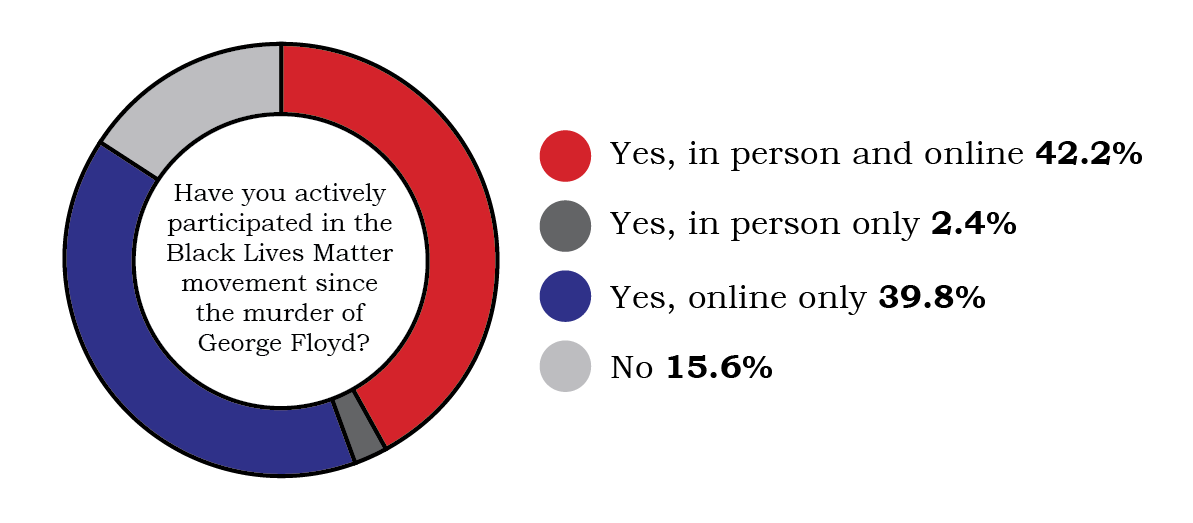
Did you actively participate in the Black Lives Matter movement prior to the murder of George Floyd?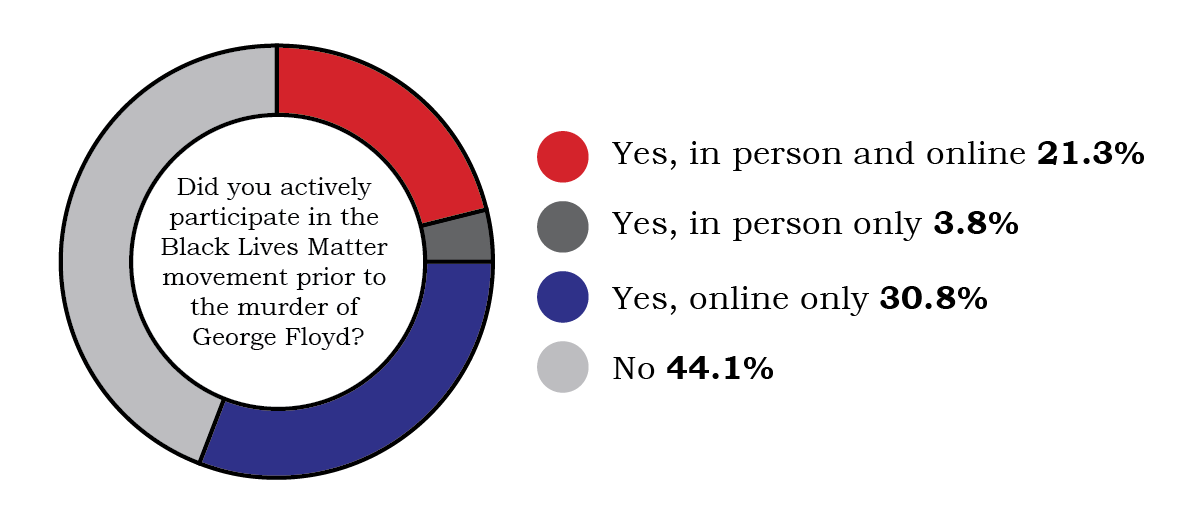
Prior to May 2020 and the murder of George Floyd, only 55.9% of respondents actively took part in the Black Lives Matter movement in some capacity. After, the number jumps to 84.4%. Read additional coverage on student activism online here and student activism in person here.
In your opinion, what are the five most pressing political issues currently?
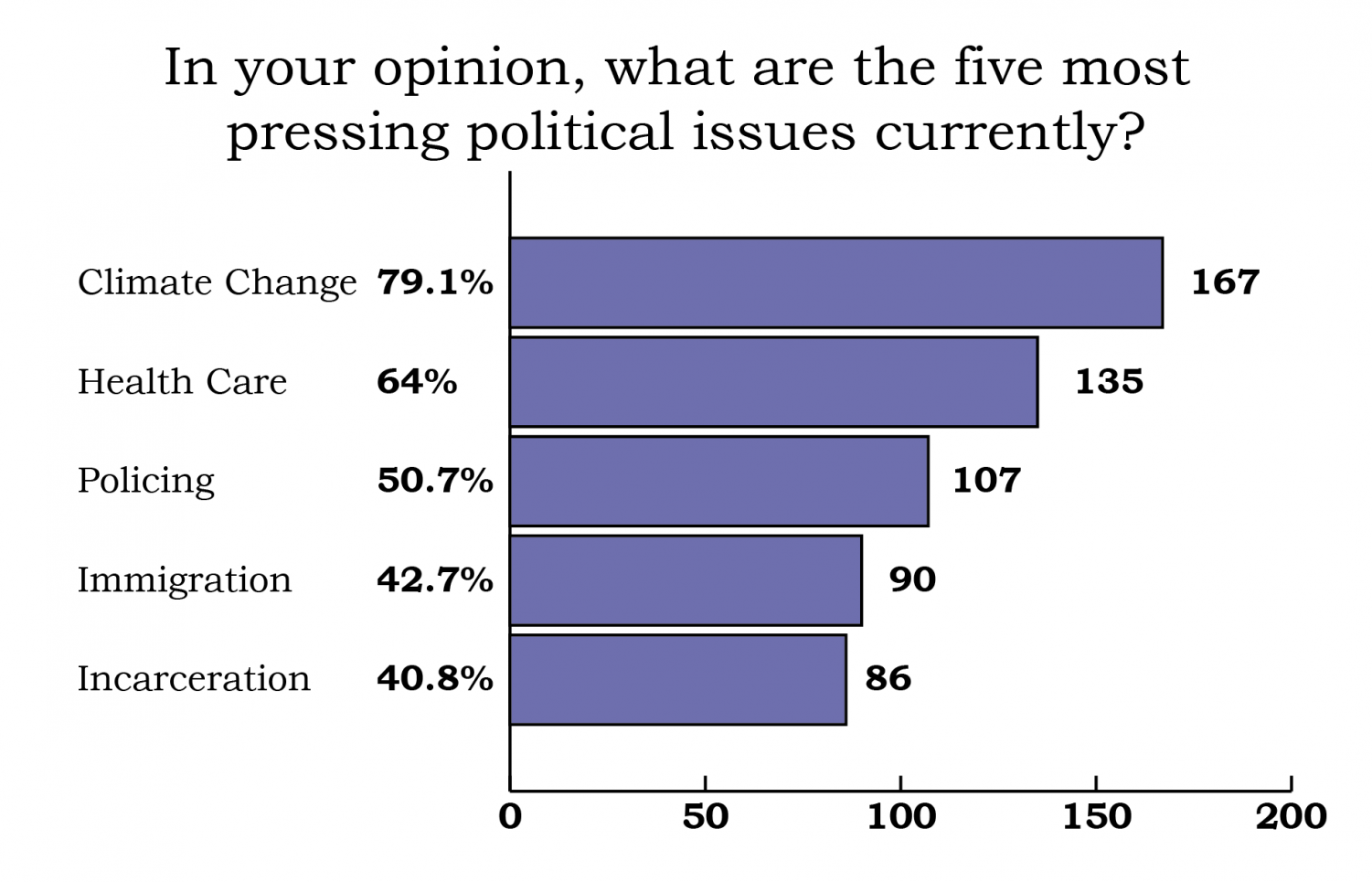
Students’ most pressing political issues aligned with these five topics. Abortion, education, gun control and unemployment were other issues that ranked highly. Read about how students respond to their most pressing issues not being addressed in the upcoming election here.
How confident are you that the most pressing political issues you listed will be addressed by incoming politicians in the next four years?
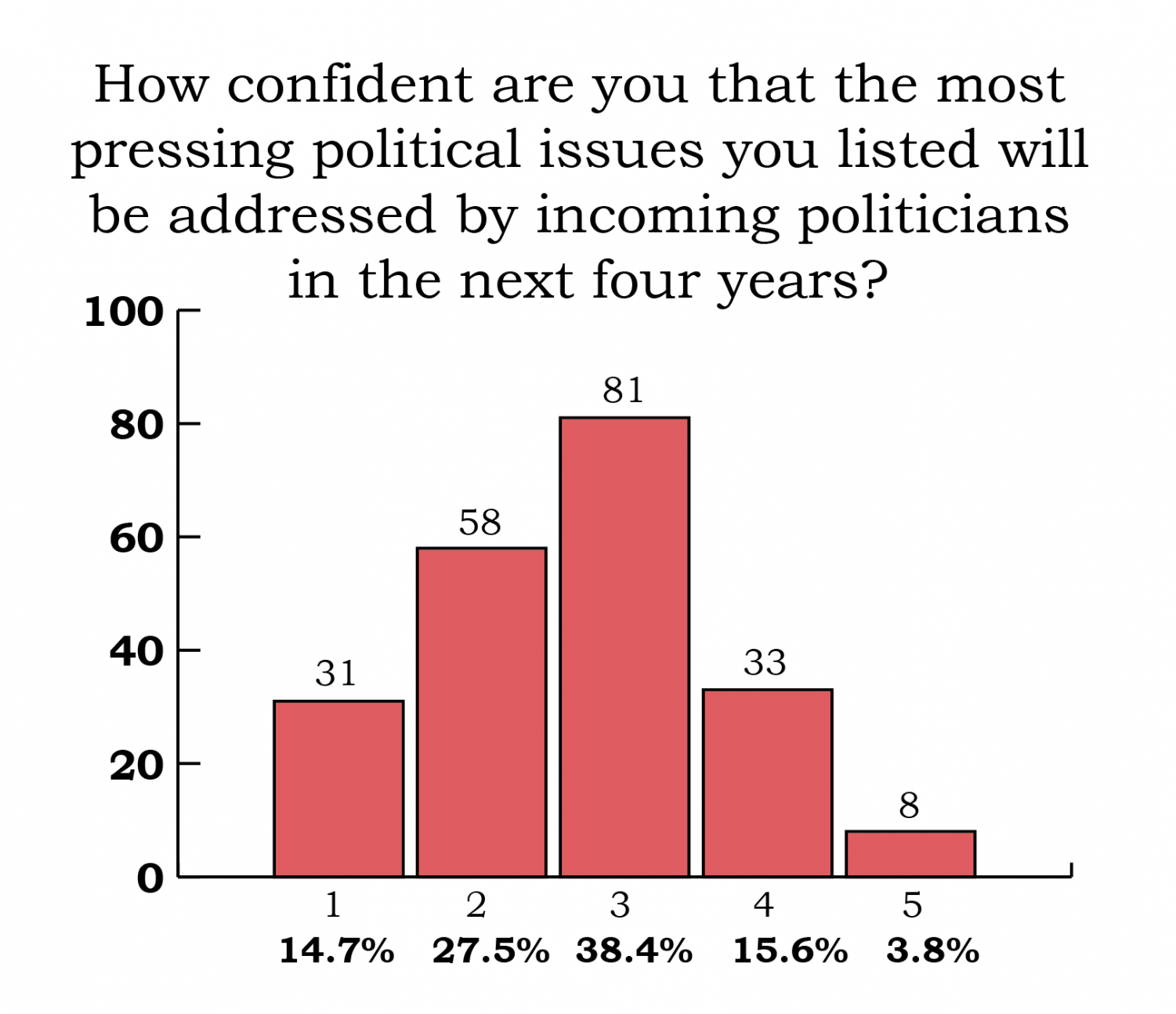
Reactions showed that students do not know if positive change will occur in the next four years. Only 3.8% of respondents felt confident that the issues would be addressed, while 14.7% felt strongly that they would not be addressed.
Do you have trust in the current American political system to serve justice and do what you believe is morally right?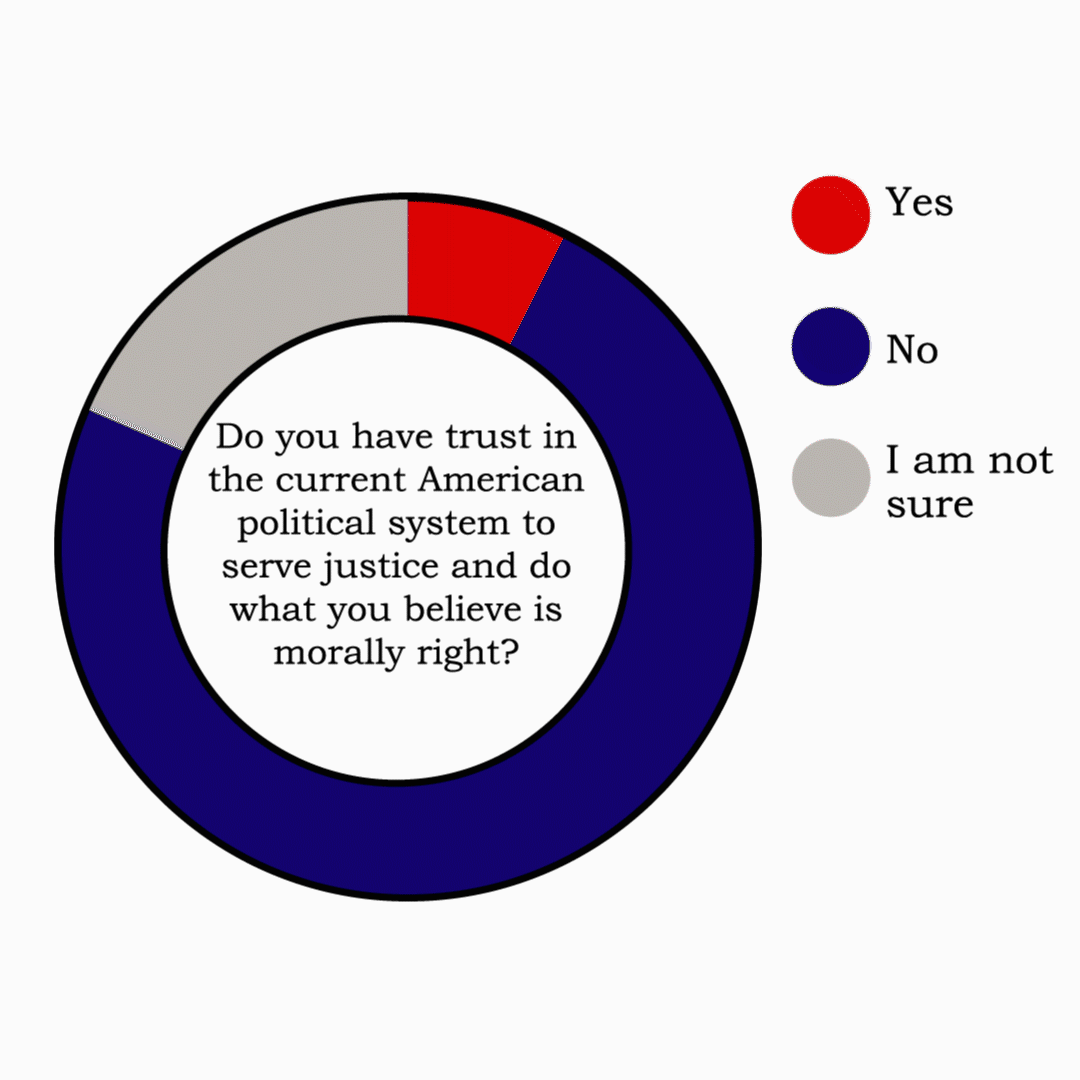
Only 7.6% of respondents trust the United States’ current political system. Read additional coverage about students’ lack of faith in the system here.
Do you think the Fordham community shares the same political beliefs as you?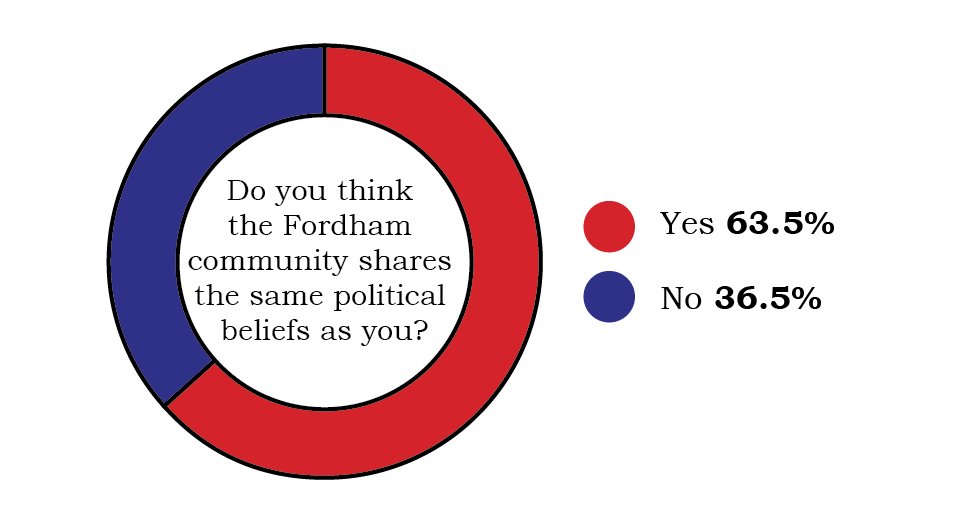
More than half of Fordham students believe their peers share similar political views as themselves. The group that answered “yes” comprises 63.5% of respondents. Read additional coverage about the divide within the Fordham community here.
Do your political beliefs align with your direct family members?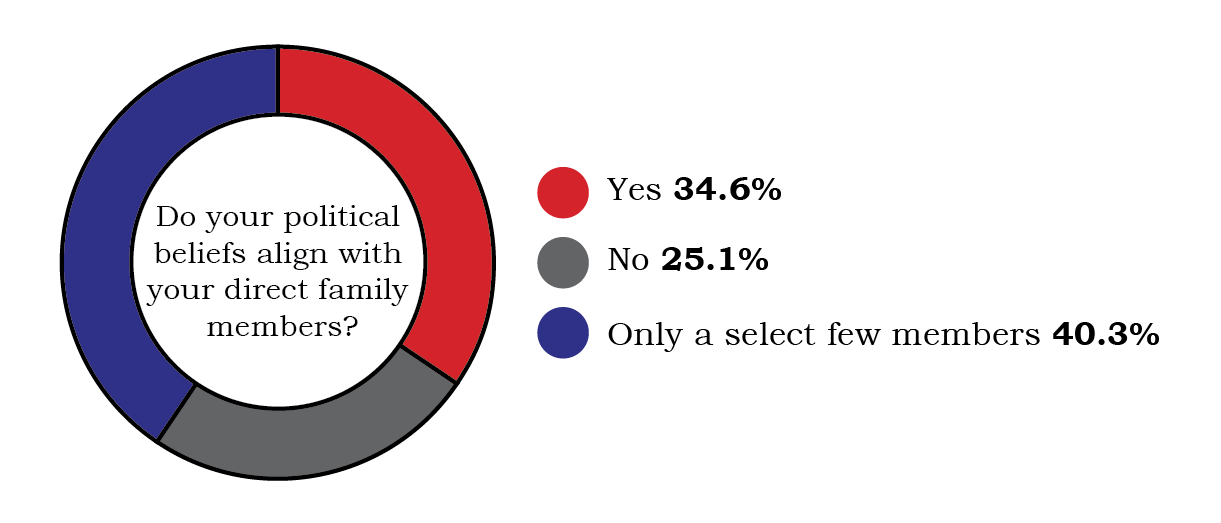
Do the political views of your family members impact your voting?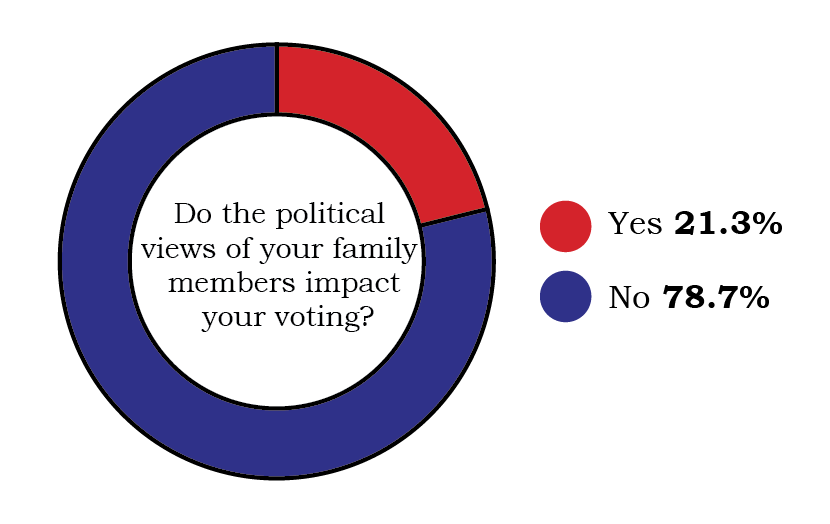
How Fordham students relate to their families politically is split. One-fourth of respondents do not share views with their family members, and about one-third do share beliefs. The other students mark a mixture of members they agree and disagree with. About one-fifth of students said their family impacts how they vote. Read additional coverage about how politics affect familial relationships here.
Have you ever ended a friendship due to contrasting political beliefs?
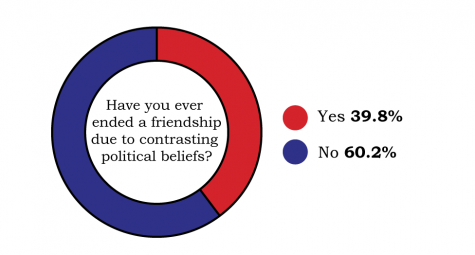
Almost 40% of Fordham students have ended a relationship due to differing political ideology. Read additional coverage on how politics affect relationships here.
Do you partake in activism via social media? (i.e. sharing resources on your personal accounts, fundraising digitally, etc.)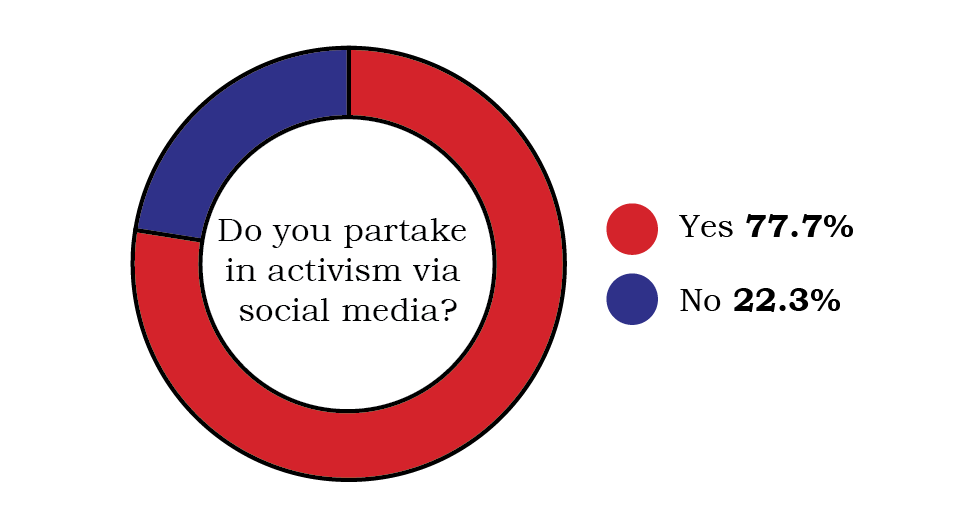
Did you actively participate in online activism prior to the murder of George Floyd?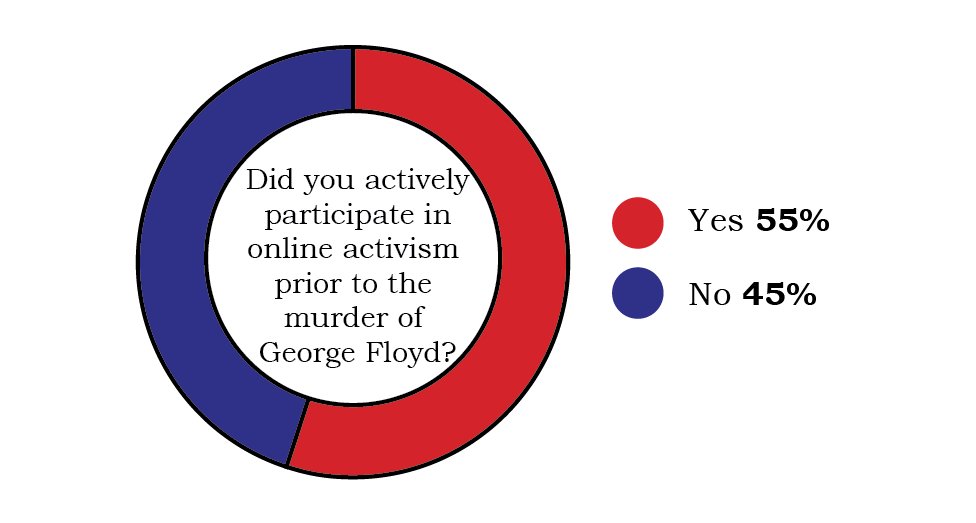
Over three-fourths of respondents post political content on social media. This number is dramatically higher than the amount of students who engaged in online activism prior to the murder of George Floyd — only 55%. Read additional coverage about online activism here.
Do you believe that online activism is effective?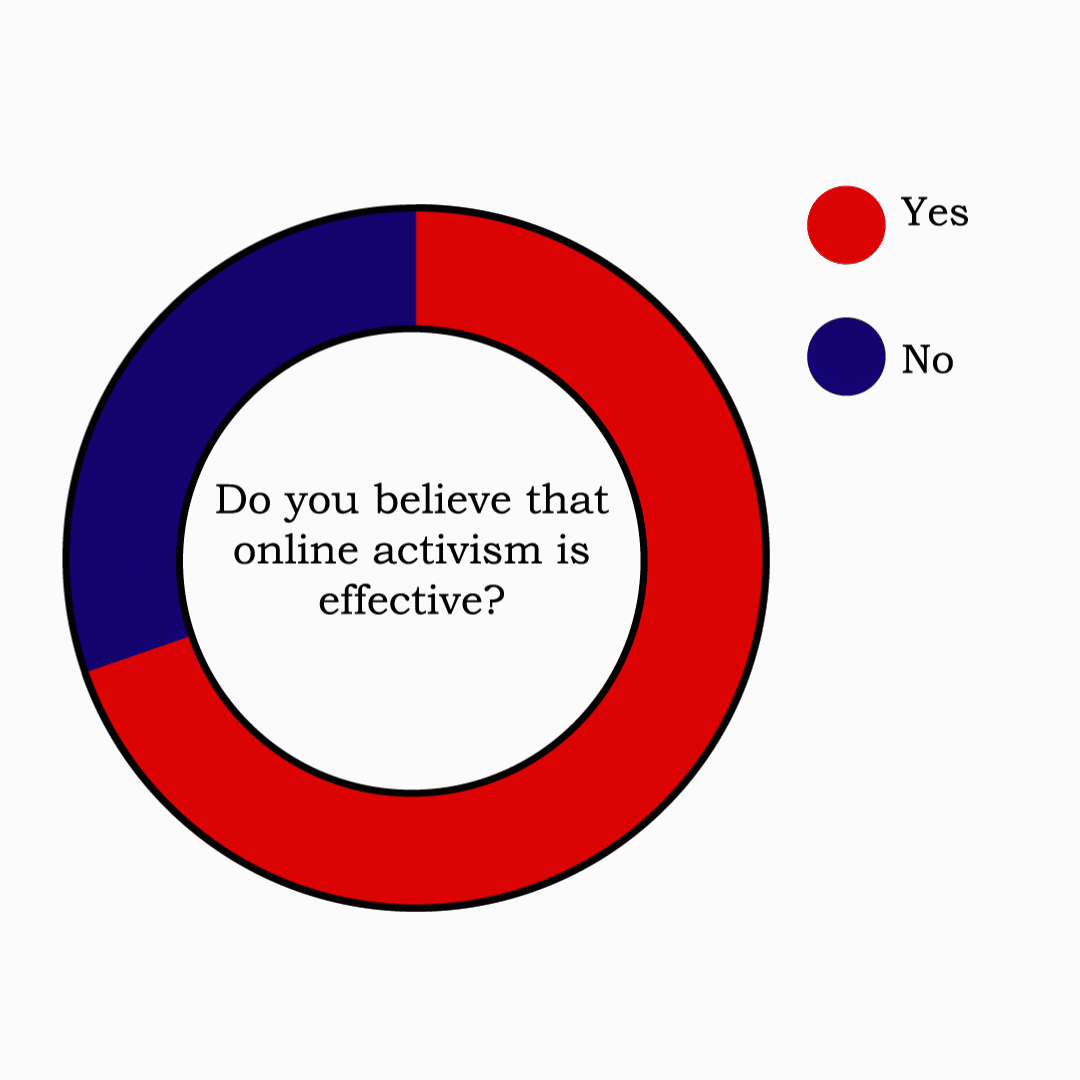
Do you feel pressured to engage in online activism?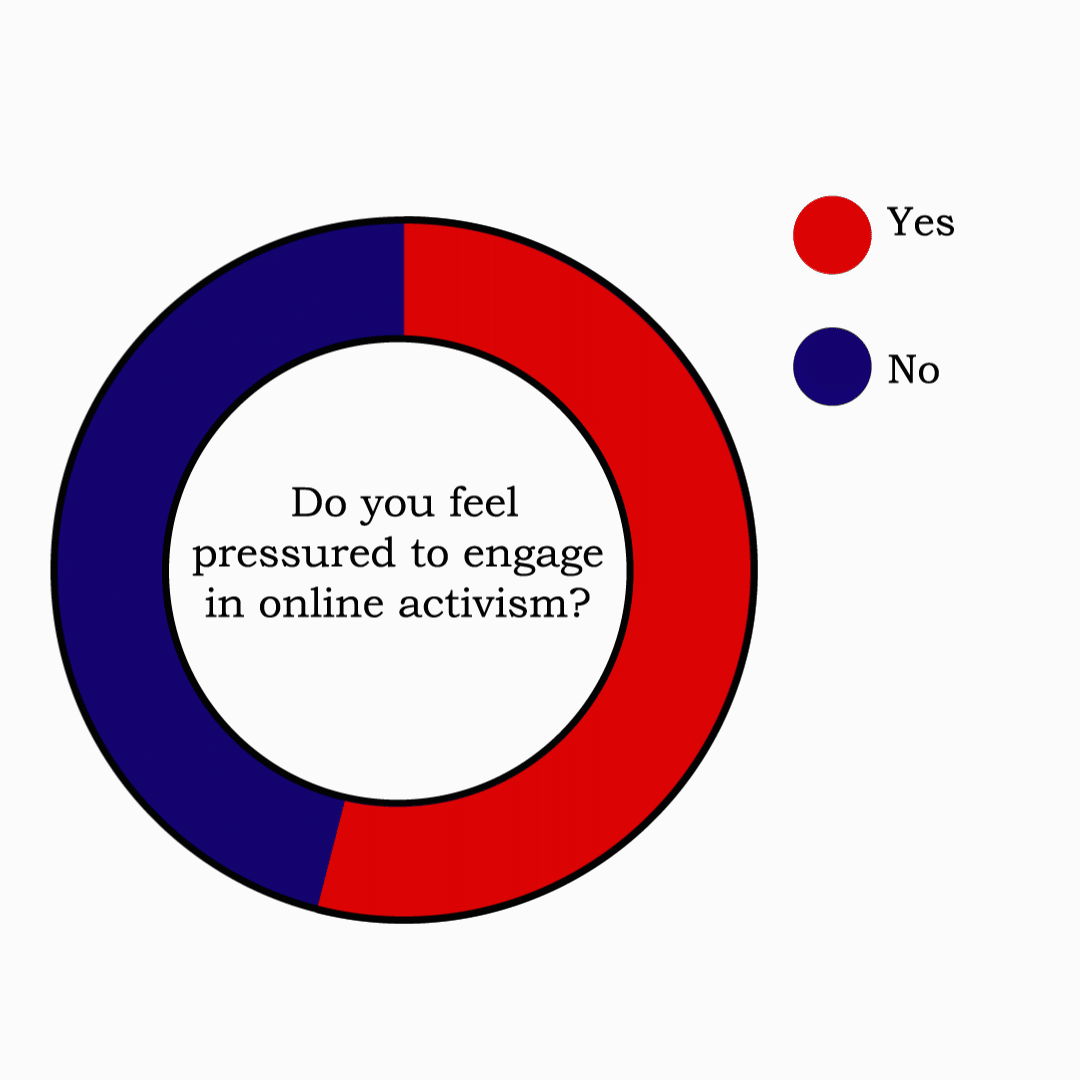
Do you believe that online activism is performative?
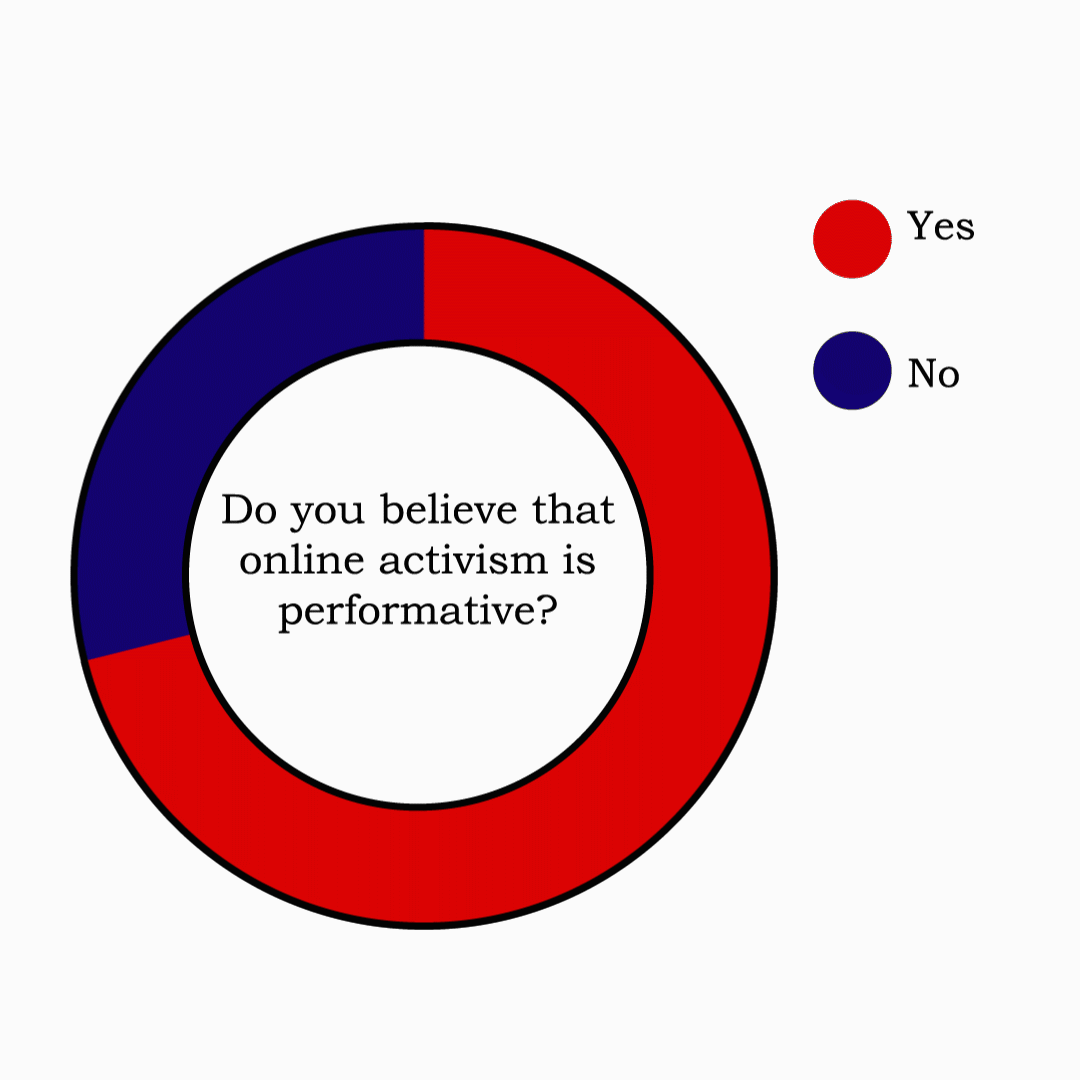
Less than 70% of students believe that online activism is effective even though over 70% said they participate in online activism. Students were split when asked if they feel pressured by political posts; 54% said they do feel pressured to engage, while 46% answered no. Almost three-fourths of the respondents said they felt like online activism is performative. Read additional coverage about students’ relationship to online activism here.
Do you take part in activism that is not online/social media-based? (i.e. phone banking, organizing supply drives, canvassing, etc.)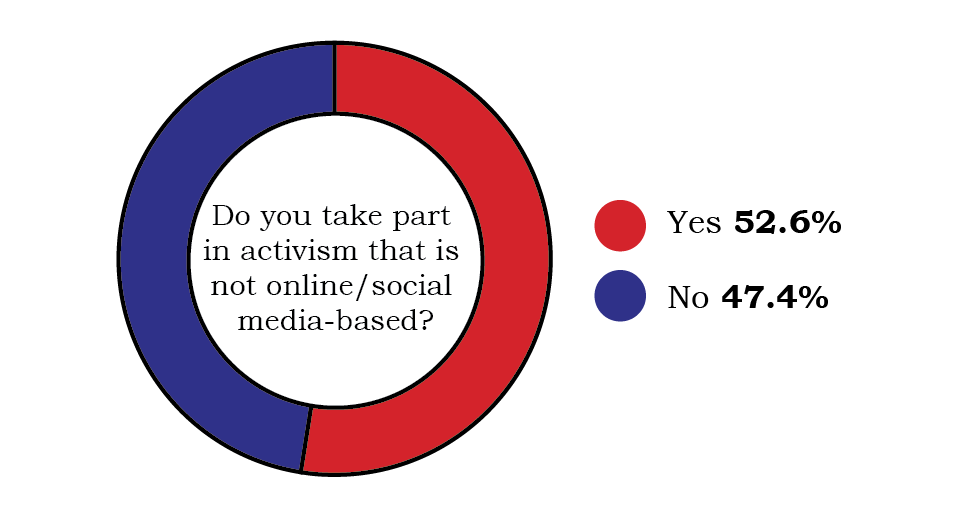
About half of students partake in activism that is not online. Some activities students mentioned they engage in include: phone banking, protesting, donating and canvassing. Read additional coverage about student civic engagement here.
Do you engage in political education outside of the classroom? 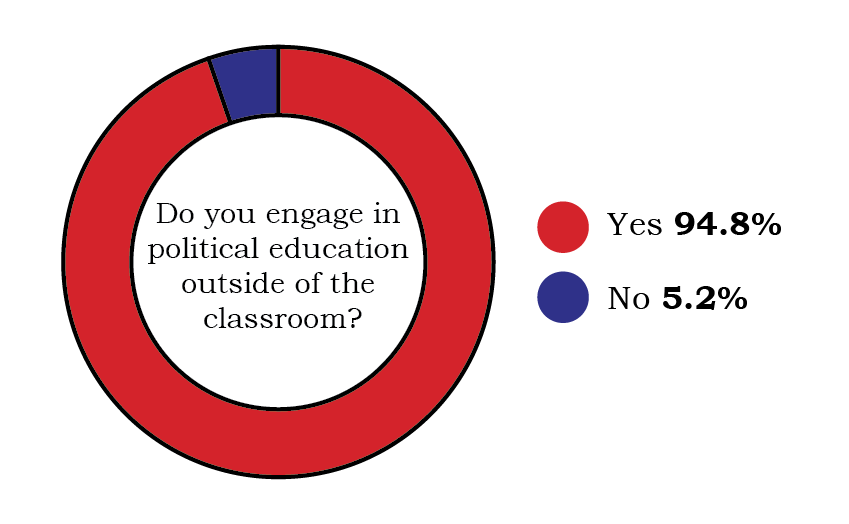
If yes, check all methods of education that apply.
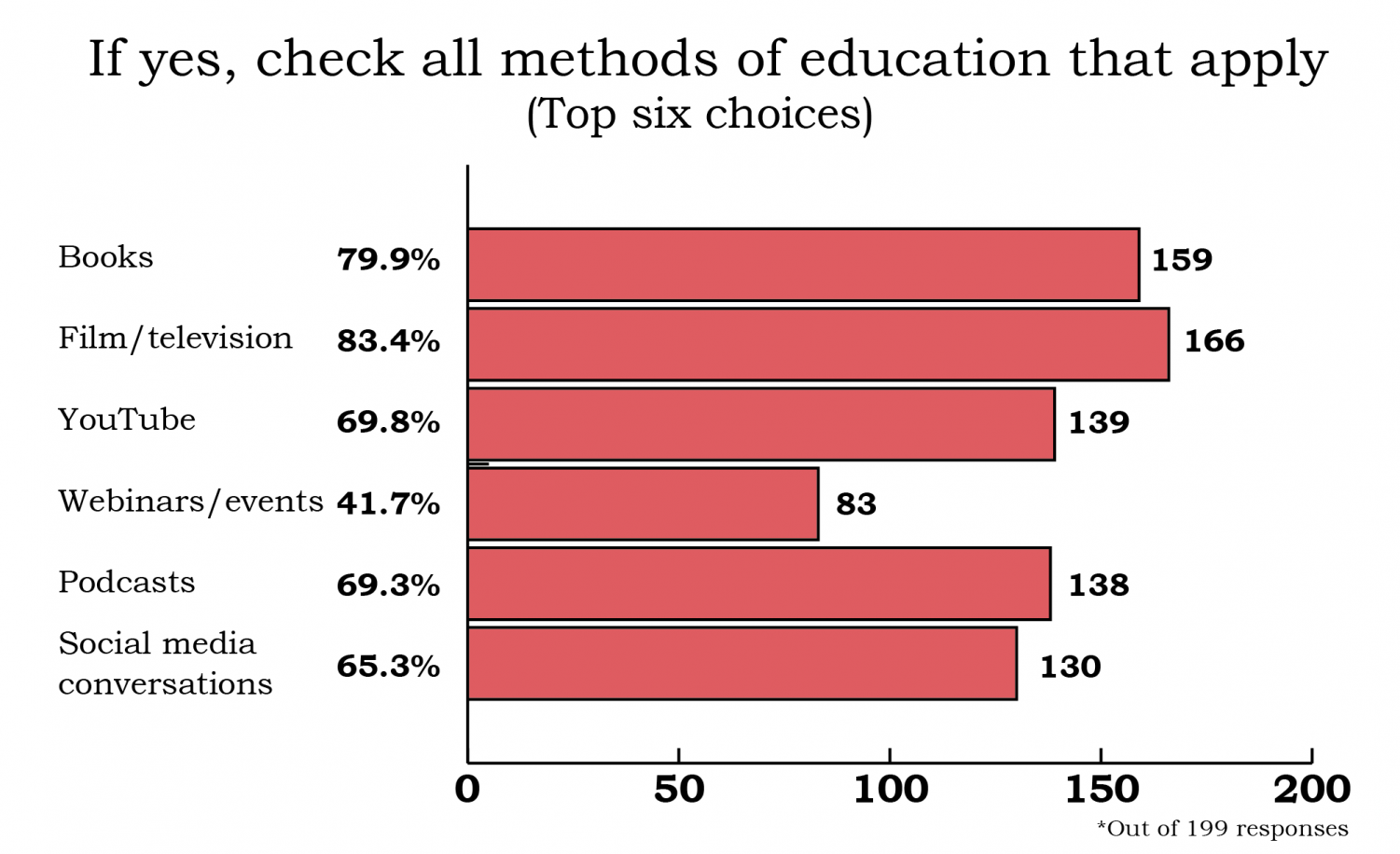
An overwhelming majority of students engage in political education outside of the classroom. Methods of engagement include books, television, movies, social media, webinars and podcasts. Read additional coverage about political education here.
Graphic illustrations by Maddie Sandholm and Alison Ettinger-DeLong.

